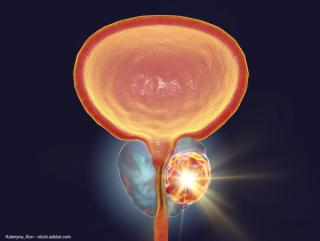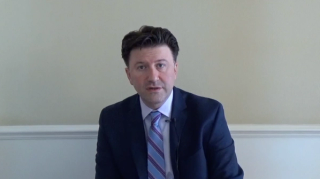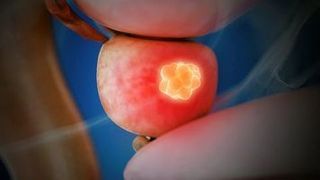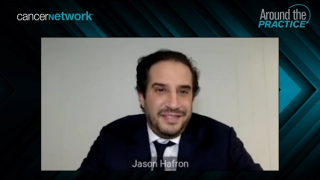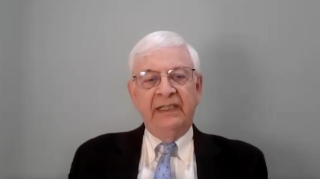
Prostate Cancer
Latest News
Latest Videos

CME Content
More News

Robert A. Dowling, MD examines the possible impact of prostate cancer surveillance management approaches on a urology practice’s reimbursement and income.

A receptor involved with HIV therapy also appears to be linked to prostate cancer metastases, according to recent research from Thomas Jefferson University, Philadelphia.

Long-term testosterone therapy in hypogonadal men appears to be safe and does not increase the risk of prostate cancer, according to a newly published analysis of three patient registries.

A report analyzing more than 191,000 cases of prostate cancer has found that being overweight or obese increases men’s risk for advanced prostate cancer.

Results from the U.S. validation study of a test that combines plasma levels of four prostate-specific kallikreins with clinical data demonstrated it accurately predicts high-grade prostate cancer and is superior to a validated clinical variable-based risk calculator.

Dendreon Corp., the maker of sipuleucel-T (Provenge), said it expects no impact on access to the prostate cancer immunotherapy following the company’s Chapter 11 filing last week.

This video demonstrates a wide-excision prostatectomy for patients with locally advanced, high-risk prostate cancer.

These videos depict a classic tennis racquet bladder neck reconstruction and mucosal eversion as popularized by Patrick Walsh, MD, for open prostatectomy, but used by relatively few surgeons for robotic prostatectomy.

The AUA has refuted findings from a recent study that reported a modest association between vasectomy and lethal prostate cancer.

Other products featured include a 16-slice CT scanner, new generic testosterone gel, prostate cancer risk calculator, and more.

New biomarkers for prostate cancer are showing great promise for addressing the limitations of existing diagnostic and prognostic tools, according to opinion leaders who spoke on this topic at the Large Urology Group Practice Association annual meeting in Chicago.

Magnetic resonance imaging (MRI) is a promising tool for optimizing prostate cancer biopsy that appears to overcome the shortcomings of conventional systematic transrectal ultrasound (TRUS)-guided biopsy and also provides novel information for risk stratification that can guide the decision of whether to perform biopsy, according to Samir Taneja, MD.

The American Society of Clinical Oncology has endorsed the AUA/American Society for Radiation Oncology guideline on the use of adjuvant and salvage radiotherapy after prostatectomy.

Two recently published studies provide new insight on cardiovascular morbidity and mortality associated with androgen deprivation therapy in men with prostate cancer.

Despite another anti-prostate cancer screening message (this one from north of the border), many U.S. urologists have already taken a more individualized approach to screening and will likely continue to do so.

A vast majority of top-ranked consumer health websites disagree with the U.S. Preventive Services Task Force’s recommendation against screening for prostate cancer, according to a study presented at the American College of Surgeons clinical congress in San Francisco.

The number of sexual partners a man has could be related to risk of being diagnosed with prostate cancer, Canadian researchers report.

Inflammation may be the missing link between vitamin D and prostate cancer, new study findings from the University of Colorado Cancer Center in Denver suggest.

In this article, Robert A. Dowling, MD, reviews the challenges of implementing active surveillance in a practice as well as ways to surmount these obstacles.

In separate actions, the FDA allowed the marketing of a urinary prosthesis for women and approved a supplemental new drug application for a lymphatic mapping agent.

Palmetto GBA, a Medicare Administrative Contractor that assesses molecular diagnostic technologies, has issued a draft local coverage determination for the Prolaris prostate cancer test, Myriad Genetics, Inc. announced.

Robot-assisted radical prostatectomy is associated with a lower rate of blood transfusion and shorter length of stay compared to open surgery. However, the total first-year reimbursement is higher for RARP and there is no difference between the two procedures in the rate of postoperative complications or use of additional cancer treatment, according to an analysis of contemporary data from the Surveillance, Epidemiology, and End Results Medicare-linked database.

A new checklist-based assessment tool could prove to be useful for surgeons learning robot-assisted radical prostatectomy.

The application of dehydrated human amniotic membrane as a therapeutic patch covering the neurovascular bundle may have profound effects on the early recovery of erectile function in men undergoing nerve-sparing, robot-assisted laparoscopic radical prostatectomy, a retrospective study suggests.

Abiraterone acetate (ZYTIGA) as therapy for chemotherapy-naïve metastatic castration-resistant prostate cancer (mCRPC) improved overall survival by a statistically significant 19% compared with placebo in the final analysis of the phase III COU-AA-302 clinical trial.


